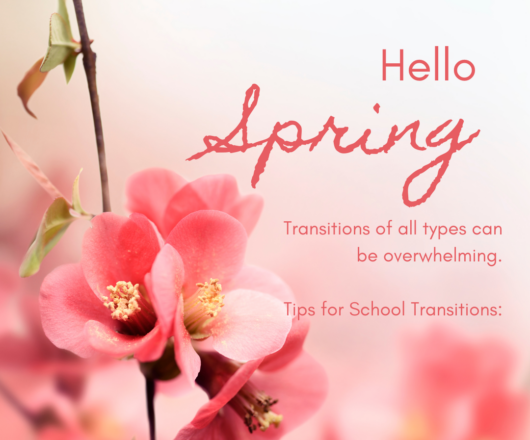

March 25, 2024
Spring Can Makes Us Think About Transitions…
Navigating school transitions, such as moving from elementary to middle school, middle to high school, or entering college, can be a significant and sometimes challenging experience for students. Here are some strategies to make these transitions smoother and more successful:
1. Visit the New School Beforehand
- Take advantage of orientation days or arrange a visit to explore the new school. Familiarizing yourself with the layout, classrooms, and facilities can reduce anxiety and increase comfort on the first day.
2. Connect with Peers and Teachers
- Try to meet classmates and teachers ahead of time, if possible. Engage in school-sponsored activities or social media groups to connect with future classmates.
- Establishing a rapport with teachers early on can also provide a support system within the school.
3. Stay Organized
- Transitioning often means handling a more challenging workload. Use planners, apps, or calendars to keep track of assignments, projects, and important dates.
- Develop a daily routine with dedicated study time, extracurricular activities, and relaxation.
4. Engage in Extracurricular Activities
- Participate in clubs, sports, or other activities that interest you. This is an excellent way to meet people with similar interests and can make the school environment feel more welcoming.
5. Seek Support When Needed
- Don’t hesitate to use school resources like counseling services, academic advisors, or tutoring if you feel overwhelmed.
- Open communication with parents, teachers, and friends about adjusting can provide additional support and advice.
6. Embrace New Challenges
- Be open to new experiences and opportunities. School transitions can be a time for personal growth and development. Try new things, and don’t hesitate to step out of your comfort zone.
7. Focus on Time Management
- Managing your time effectively becomes crucial with the increased workload and extracurricular opportunities. Prioritize tasks, avoid procrastination, and make time for breaks.
8. Maintain a Positive Attitude
- A positive mindset can significantly impact your transition experience. Focus on the opportunities ahead rather than dwelling on fears or uncertainties.
9. Set Personal Goals
- Setting academic and personal goals can provide direction and motivation. Reflect on what you want to achieve during this transition period and strategize how to accomplish these goals.
10. Practice Self-Care
- Transitions can be stressful. Ensure you’re taking care of your physical and mental health by getting enough sleep, eating well, and finding time to relax and enjoy hobbies.
Remember, it’s normal to feel nervous or overwhelmed during school transitions. With time, patience, and the right strategies, you can navigate these changes successfully and find new opportunities for growth and learning.